Transfer deadline day: Jermaine Jenas on the stress of a last-minute move
- Published
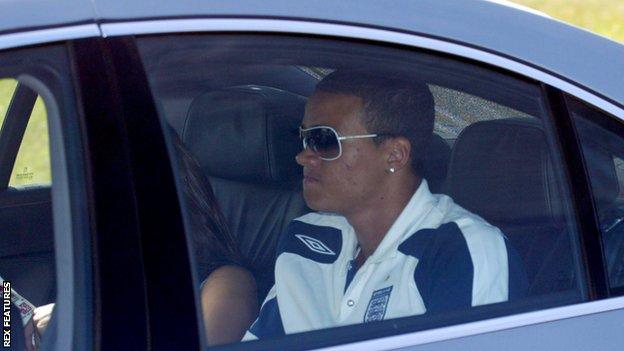
Jermaine Jenas was on international duty with England when the call came to join Tottenham from Newcastle in 2005
There is that much money flying around since the record-breaking £5.1bn television deal that clubs can afford to break their transfer records. No fewer than 13 Premier League clubs did so in the summer window. They have to keep up. The English top flight is where it is at.
Clubs have spent more than £1bn this summer. It is about the market you are in. There is more money to spend and there are bigger players to sign. The top players come at a premium, that is no different to when I was a player.
I don't see how prices are not going to increase. You have [TV channels] Sky Sports and BT Sport pumping the money in and if they pulled out, you would still have others such as Disney or Al Jazeera taking it up. As a brand, the Premier League is getting stronger and the money will increase. The only way to make it stop is for the clubs to say no.
You can see every player has his price. Paul Pogba moved from Juventus to Manchester United for a world-record fee and people are saying it is too much money. The fact is, Pogba will earn the club far more than that anyway through shirt sales alone. It is all relative.
The agents are there to function twice a year, to make their money on the January and August deadline days. Everything previous to that is them building up to their big day.
Jenas' career | |
|---|---|
2000-2002: Nottingham Forest - 33 games, four goals | 2011: Aston Villa (loan) - three games |
2002-2005: Newcastle United - 152 games, 12 goals | 2012: Nottingham Forest (loan) - six games, one goal |
2005-2013: Tottenham Hotspur - 202 games, 26 goals | 2013-2015: QPR - 40 games, four goals |
Deal done in a couple of hours
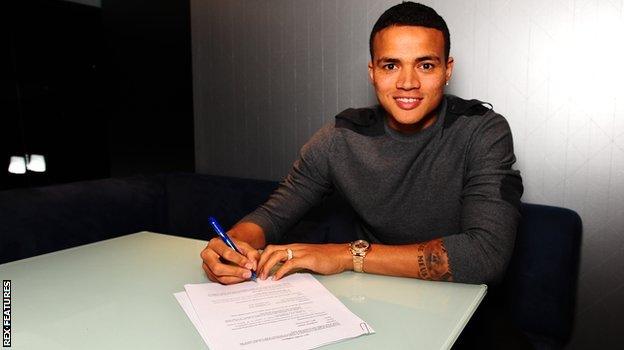
Jenas' moves to Tottenham, Aston Villa and QPR all came on transfer deadline day
Back in 2005, there were a lot of rumours about me moving to Arsenal or Tottenham. I knew I had to get out of Newcastle at the time to better my career. I was unhappy with the Magpies as Sir Bobby Robson was not there as manager and I did not feel like I was developing as a player.
On transfer deadline day, I was on international duty with England so had packed my stuff up and made the trip down south. We were at base in St Albans with the national side and I was sat relaxing in a hotel room on the evening of transfer deadline day. I got a phone call from my agent at about 10pm and then one of the England staff came in saying 'you have to go'.
I was then in a car on the way to Chigwell, so before the midnight deadline, I had to have my medical and sign on the dotted line. I was young then, only 22, I was fit and playing regular football so the medical did not take long. I didn't do any MRI machines, it was just a general check-up from the doctor, who took my medical history. It was all done within the space of two hours.
Once you sign, there is no going back
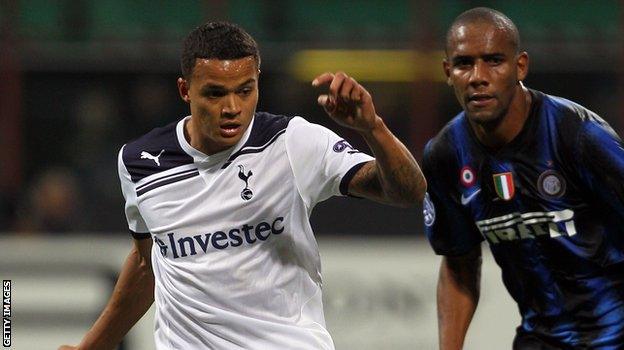
Jenas played in the Champions League for Newcastle and Tottenham
When I moved from Newcastle to Tottenham, I never went back, I was gone. I even had two houses there. I left for England duty and the day after finishing you are expected to go back to your club, but I had signed for another one.
We played our first game against Liverpool and then I was in the cycle of looking for a property to live in and your old club is in the past.
I left everything that was in my locker too, things such as boots and shinpads. I spoke to Alan Shearer [former Newcastle striker] before I left and he told me to make sure it was what I wanted to do.
My main focus was not money, it was to play well again and get into the England squad for the 2006 World Cup. I was happy with the deal Spurs offered, there was not too much arguing about it because they were good to me. I just signed it.
Emotional upheaval and sleeping on bad beds
The Premier League's record transfer window
Transfer deadline days can be stressful times. You see a lot happening at your own club and then start putting together the pieces. You think, "what if so-and-so players come in? Where does that leave me? Where do I fall in the pecking order? Will I have to sit on the bench"? At Spurs, I was not prepared to do that.
My loan move to Aston Villa in August 2011 and transfer to QPR in January 2013 were on transfer deadline days too. I joined Martin O'Neill at Villa who had been chasing me for a long time and I was going to be one of the bigger players at the club.
It can be really stressful for the family and my child had just turned one so it was a real pain for them. I was lucky because when my moves took place, my children were not in school, but it was hard for my wife. She had lived in London her whole life so moving her from there to Birmingham was not a major move, but emotionally it was.
I was in a hotel in Birmingham for two months so you get into a routine of eating the same room service each week and sleeping on bad beds. It is a culmination of things which are very unsettling.
Expecting one move, making another
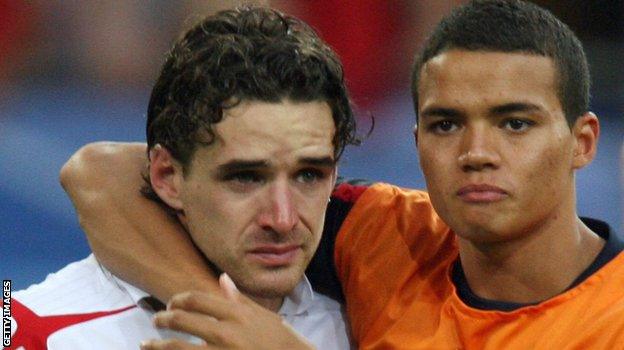
Manchester City looked at signing Jermaine Jenas in 2011 but opted for Owen Hargreaves instead
I don't know if Spurs were my first choice at that particular time. Initially, when the rumours had started about [a move to] Arsenal, I was very interested because I wanted to play for [their manager] Arsene Wenger. He was developing young players like [Spain midfielder] Cesc Fabregas, so I wanted to improve as a player and he was the main man doing that. I think he lost faith in English players though.
Tottenham had a good core of English players such as Michael Carrick, Jermain Defoe, Sean Davis and Michael Dawson. I wanted to be a part of that and I knew I would play under [then-manager] Martin Jol. We were on England duty in Chicago and Carrick and Defoe asked if I fancied it. I was confused at the time, I knew I wanted to leave but did not know where I wanted to go.
When I went to Villa, I had gone in to training with Spurs on the morning. I was actually expecting a call to go to Manchester City after speaking to their coach David Platt, who I had been with at Nottingham Forest. He told me he had spoken to manager Roberto Mancini, they would love to have me on board so the move was up to me. In the end, they signed Owen Hargreaves so I went to Villa.
In football, you do have regrets and there are decisions you have to make especially on deadline day. It is heightened by the fact that is has to happen NOW. Should I? Should I not? The decision is made and you are gone.
Jermaine Jenas was speaking to BBC Sport's Shamoon Hafez
- Published1 September 2016
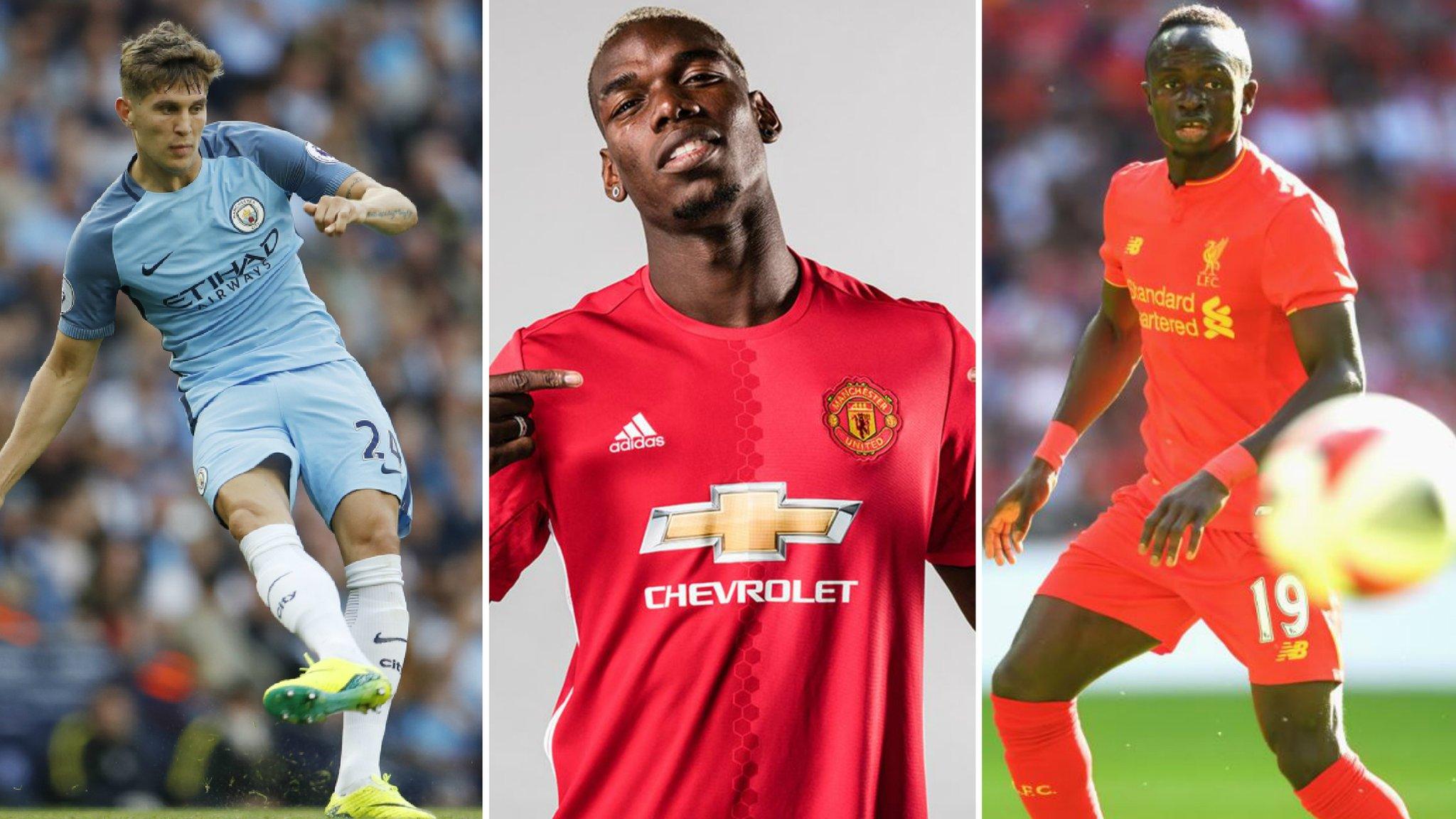
- Published3 September 2016
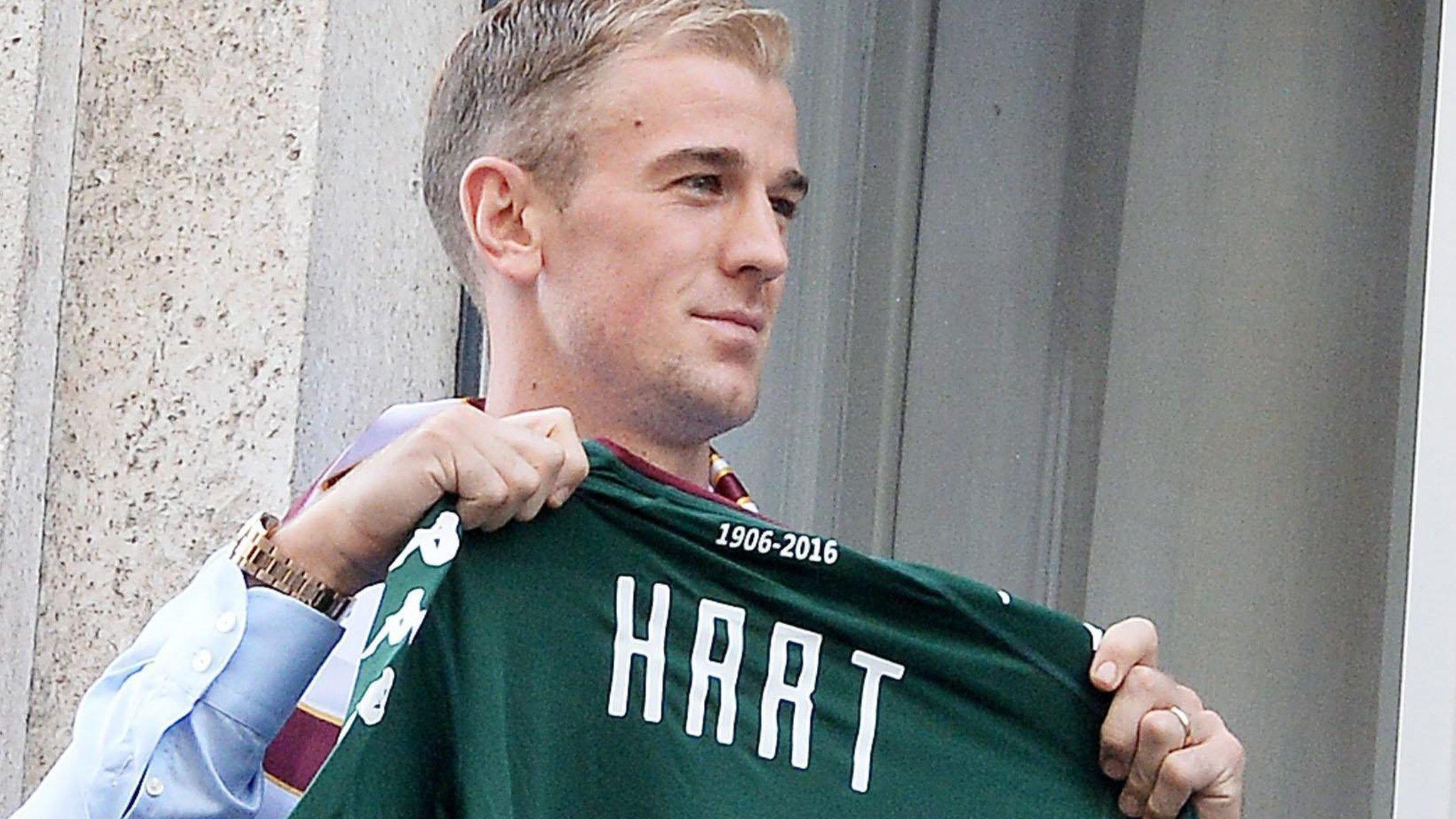
- Published31 August 2016
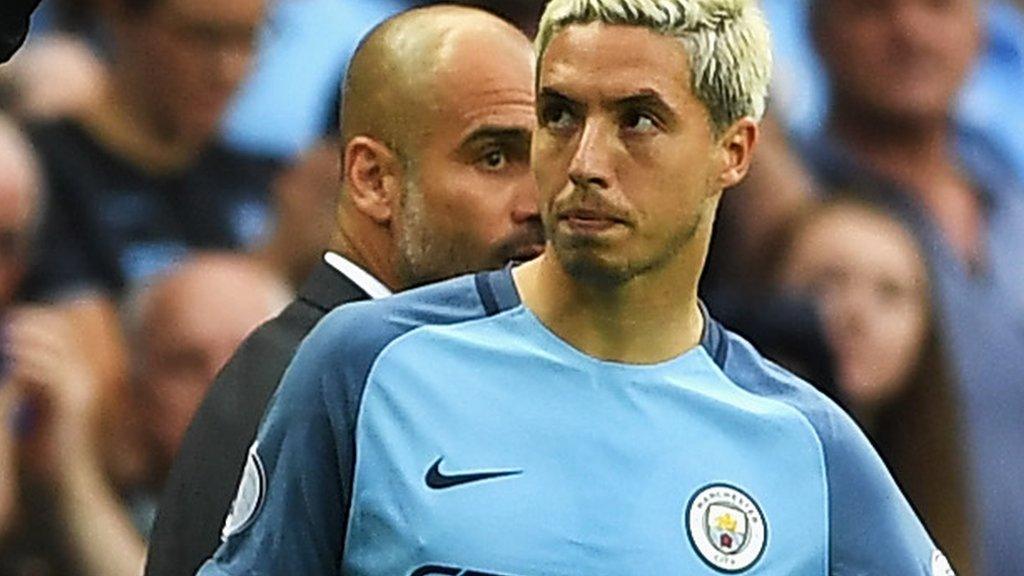
- Published14 January 2018
- Published8 August 2017
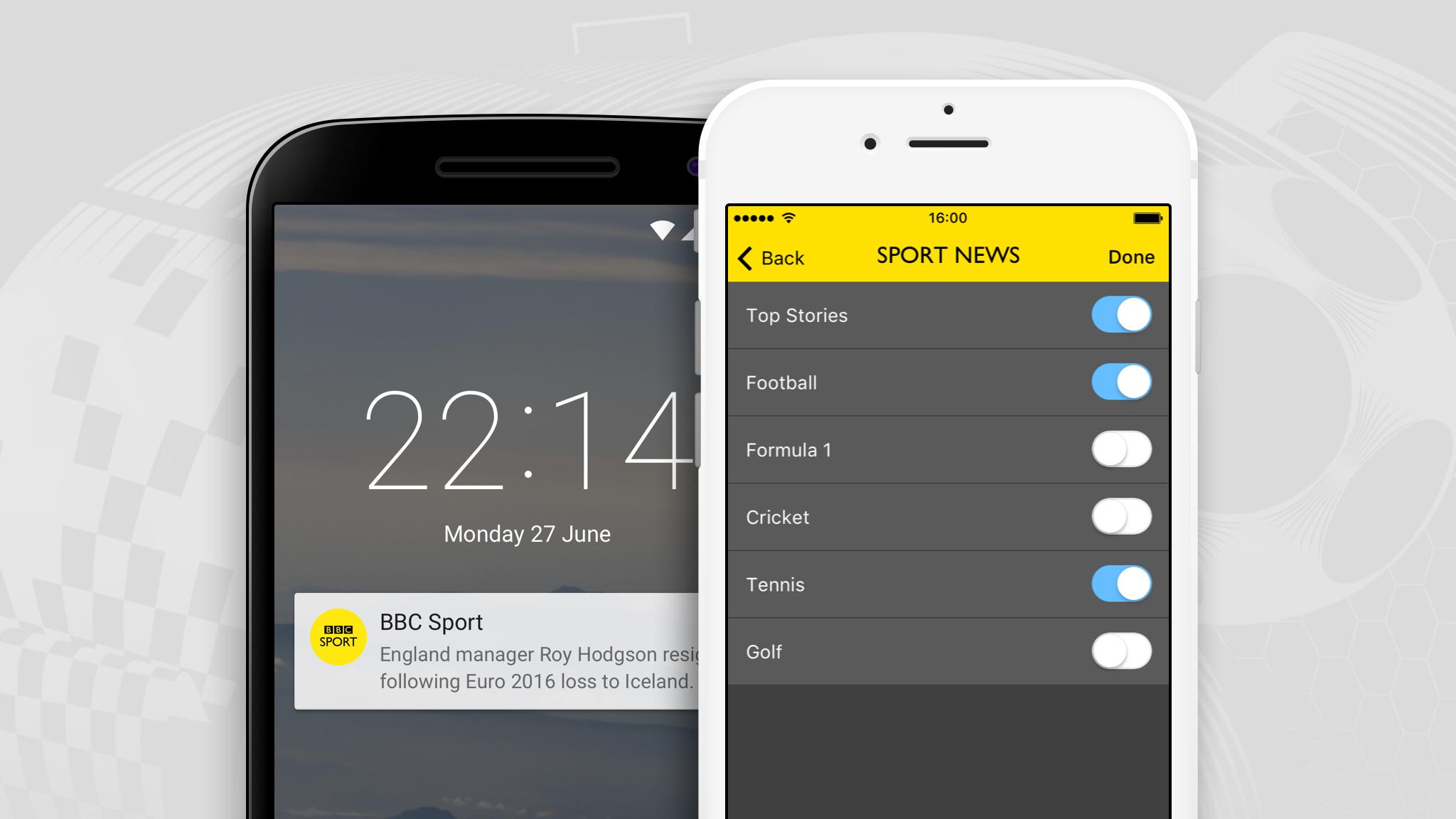
- Published7 June 2019
